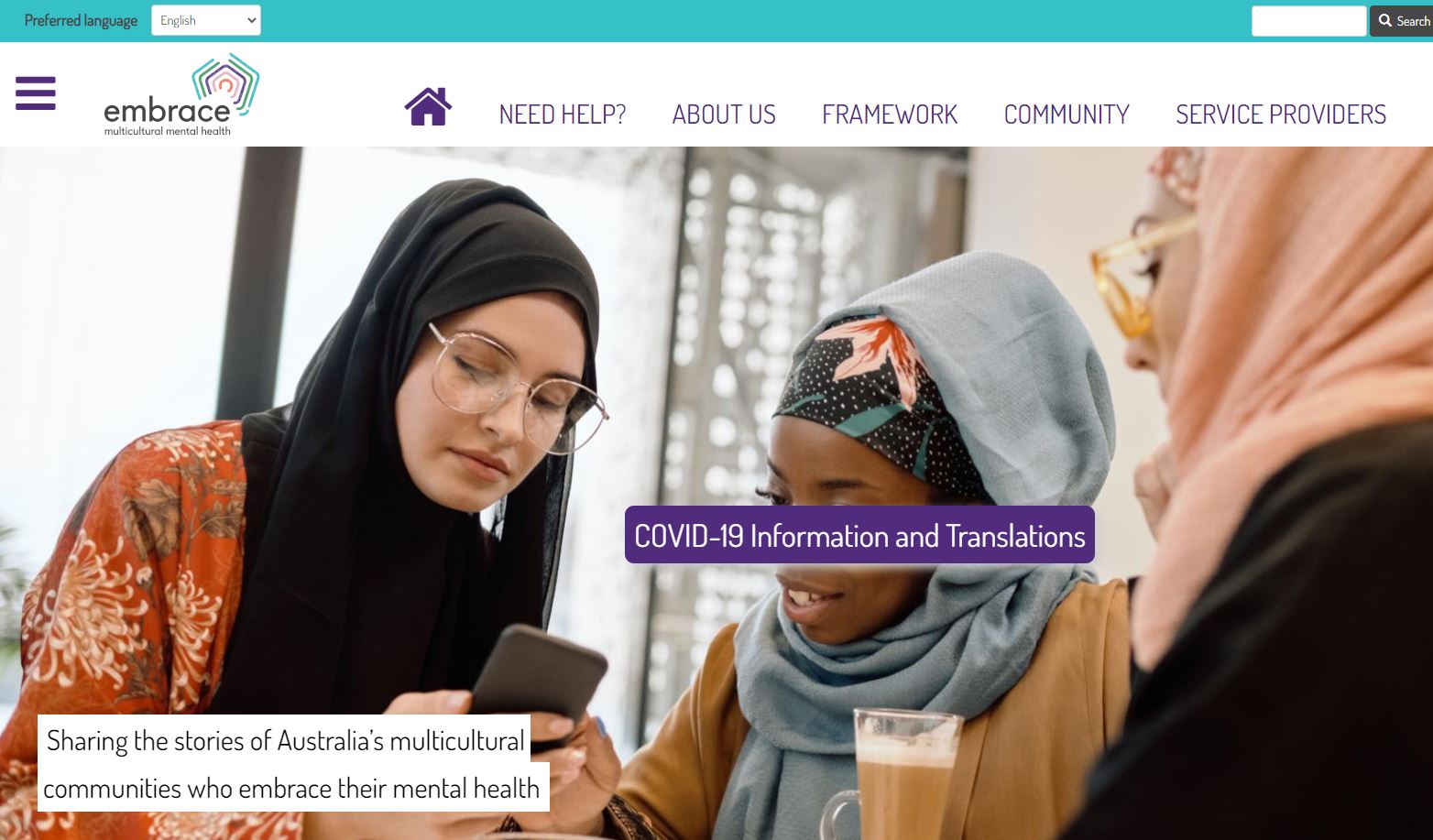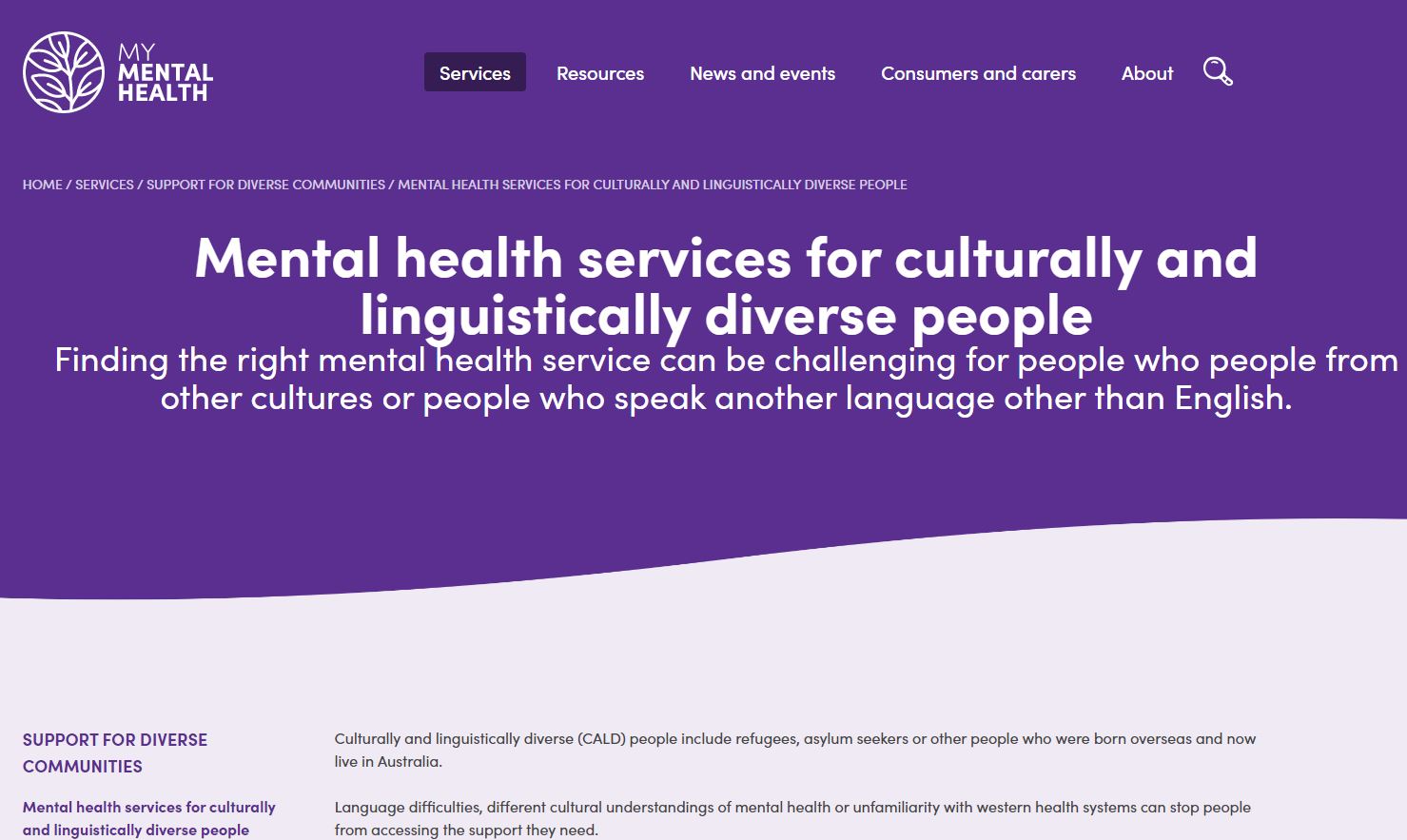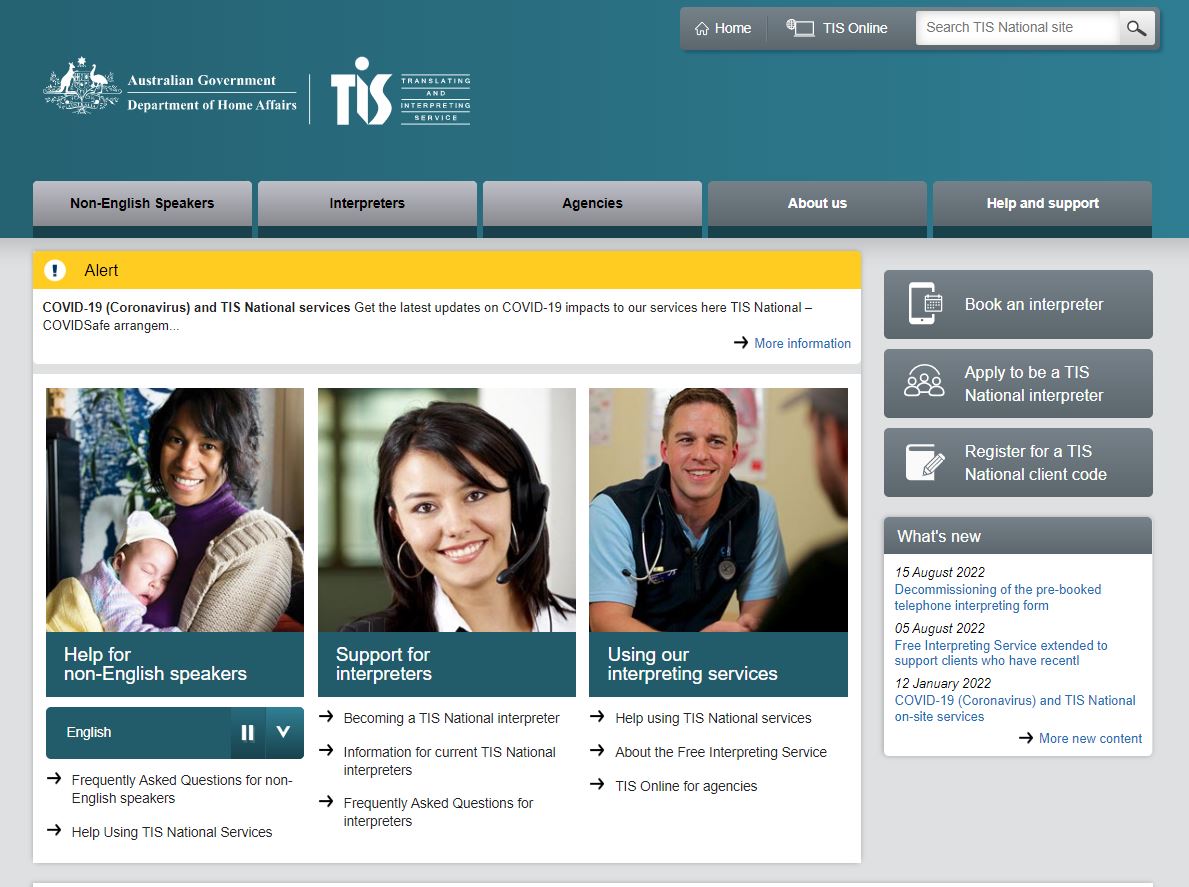Overview
Finding the right support for your mental health wellbeing can at times be difficult. We acknowledge that attitudes around mental illness, mental health, and mental well-being differ around the world and are impacted by culture, ethnicity, and religious beliefs.
Whether you identify as a refugee, asylum seeker, first or second-generation migrant there are supports and recourses available to assist you during your journey of mental wellbeing.
Supporting yourself
Taking action to support your mental wellbeing can look different for everyone. You may prefer to connect with others in your community, a service provider or work on a few calming or relaxation techniques by yourself at home. In fact, you may already have your ways of looking after your mental wellbeing however if this is new to you, there are online resources available in multiple languages that you may find helpful.
This Way Up has a list of Coping Tools available in several languages. These include:
- Ways to express yourself
- Steps for calming your emotions
- Controlled breathing
- A guide to good sleep and
- Creating your own personal Self-Care Plan.
If you are feeling unsure or nervous about asking for help know that you are not alone. Not all services may feel right for you and it is ok to do some research before you choose a service, a doctor, or health professional. If it is not an emergency, take some time and ask questions.
Culturally and Linguistically Diverse (CALD) Support Services are specifically designed to respect cultural backgrounds and beliefs and often include support staff who are bi-lingual or have their own personal lived experiences as refugees or migrants.
There are a few ways support services can assist you including but not limited to:
- Finding appropriate housing
- Finding work
- If you are new to Australia and need help finding appropriate health care
- Access to family support or counselling
- Access to a translator
- Link into community groups
- Legal advice
If you are looking for help but haven’t been able to find the right service a good place to start is Embrace Multicultural Mental Health. Embrace Mental Health has a great list of services around Australia for people who identify as someone from a culturally diverse community.
Supporting another person
As a member of a CALD community language barriers and cultural differences can present additional challenges when it comes to accessing support.
Factors such as adjusting to living in a new country, trauma, cultural stigma and differences in the way people describe and understand mental wellbeing can also have an impact on whether someone will access services.
When it comes to mental wellbeing there are a few things you can do to support someone from a CALD community:
- Be patient and seek clarification. Seek assistance from a professional interpreter service such as TIS National if you are unable to clearly communicate with one another.
- Help them to find culturally appropriate information regarding mental health. Websites such as Refugee Health Network Queensland and Transcultural Mental Health Centre provide translated resources.
- Encourage cultural acceptance within your community. Help fight the stigma and create change.
- Within some cultures, mental health and treatment are viewed differently, family expectations may differ, and mental illness and seeking help can bring on feelings of shame. Considerer cultural differences when trying to assist someone.
How we can help
If you or someone you know is in crisis
If you are worried you may harm yourself or someone else, or need immediate help for someone else in this situation:
Please call 000If you are in distress
Other helplines
- Beyond Blue | 1300 22 4636
- Open Arms – Veterans & Families Counseling | 1800 011 046
- MensLine Australia | 1300 78 99 78
- Defence All Hours Support Line | 1800 628 036
- QLife | 1800 184 527
- 13YARN| 13 92 76
Please select a state you live in
Suicide Call Back Service. Free professional telephone counselling & online chat available at suicidecallbackservice.org.au
Available 24/7
1800RESPECT Domestic Violence Counselling & Support Line. Online Chat at 1800respect.org.au or SMS on 0458 737 732
Available 24/7
13YARN First Nations Peoples Crisis Support Line. Call to talk with an Aboriginal or Torres Strait Islander Crisis Supporter
Available 24/7
Defence All Hours Telephone Support Line. For Australian Defence Force (ADF) members and their families
Available 24/7
Health Direct. Speak to a registered nurse for healthcare advice. healthdirect.gov.au
Available 24/7
Beyond Blue. Online counselling, forums, and webchat - beyondblue.org.au
Available 24/7
Access Mental Health Line. For people who have concerns about their own, or someone else’s mental health
Available 24/7
Medicare Mental Health Centre Canberra. Phone, request a call canberrammhc.com.au.
Monday, Wednesday & Friday: 8.30am-5:00pm. Tuesday & Thursday (extended hours): 8:30am-7:00pm
NSW Hospital and Health Services State-wide Mental Health Line. Speak to a trained Mental Health Professional
Available 24/7
Medicare Mental Health. Phone to find your nearest centre. Support through Medicare Mental Health Centres are free. No appointment or GP referral is required. Visit www.medicarementalhealth.gov.au
Hours vary.
NT Mental Health Line. For people who have concerns about their own, or someone else’s mental health. Speak to a trained mental health professional.
Available 24/7
Darwin Medicare Mental Health. Clinical Assessment and Treatment. Call, walk-in (16 Scaturchio St, Casuarina.)
Mon - Wed and Fri: 9am - 9pm; Thur: 1pm - 9pm; Sat - Sun (and public holidays): 12pm - 8pm
13 HEALTH. A confidential phone service that provides health advice. Call to talk to a registered nurse.
Available 24/7
1300 MH Call. A confidential mental health telephone triage service providing information, advice and referral.
Available 24/7
Medicare Mental Health. Phone to find your nearest centre. Support through Medicare Mental Health Centres are free. No appointment or GP referral is required. Visit www.medicarementalhealth.gov.au
Hours vary.
SA Mental Health Triage. A confidential mental health telephone service, staffed by mental health clinicians, providing information, advice and referral.
Available 24/7
Urgent Mental Health Care Centre (UMHCC) located at 215 Grenfell Street, Adelaide, offers an alternative to presenting at hospital Emergency Departments for a mental health crisis.
Available 24/7
Medicare Mental Health. Phone to find your nearest centre. Support through Medicare Mental Health Centres are free. No appointment or GP referral is required. Visit www.medicarementalhealth.gov.au
Hours vary.
LETSS Lived Experience Telephone Support Service (Adelaide Metro). letss.org.au
5pm - 11:30pm, 365 days a year
Access Mental Health- Helpline Triage offering phone counselling, information and referral.
9am - 10pm
Medicare Mental Health. Phone to find your nearest centre. Support through Medicare Mental Health Centres are free. No appointment or GP referral is required. Visit www.medicarementalhealth.gov.au
Hours vary.
Victoria Psychiatric Triage providing an initial assessment and identifies whether a person needs further assessment or referral.
Available 24/7
Geelong Head to Health. Call or walk-in at 8 Station Street, Norlane.
Monday–Friday, 12pm–9pm and Saturday–Sunday/public holidays, 1pm – 6pm
Medicare Mental Health. Phone to find your nearest centre. Support through Medicare Mental Health Centres are free. No appointment or GP referral is required. Visit www.medicarementalhealth.gov.au
Hours vary.
Rurallink - An after-hours telephone service for people in rural and regional WA experiencing a mental health crisis
Weeknights 4:30pm-8:30am / 24hrs on Weekends and Public Holidays
Peel -Mental Health Emergency Response Line. Call to speak with a trained mental health clinician. Callers referred to acute response teams.
Available 24/7
TTY - Mental Health Emergency Response Line.Call to speak with a trained mental health clinician. Callers referred to acute response teams.
Available 24/7
Metro - Mental Health Emergency Response Line. Call to speak with a trained mental health clinician. Callers referred to acute response teams.
Available 24/7
Medicare Mental Health. Phone to find your nearest centre. Support through Medicare Mental Health Centres are free. No appointment or GP referral is required. Visit www.medicarementalhealth.gov.au
Hours vary.
Please select a state you live in
Service Options
**** *****
**** ***** * *********** *********** ***
**** ***** ********* *****
**** ***** * *********** *********** ***
**** ***** ********* *****
**** ***** * *********** *********** ***
**** ***** ********* *****
**** ***** * *********** *********** ***
**** ***** ********* *****
**** ***** * *********** *********** ***
**** ***** ********* *****
**** ***** * *********** *********** ***
**** ***** *****





